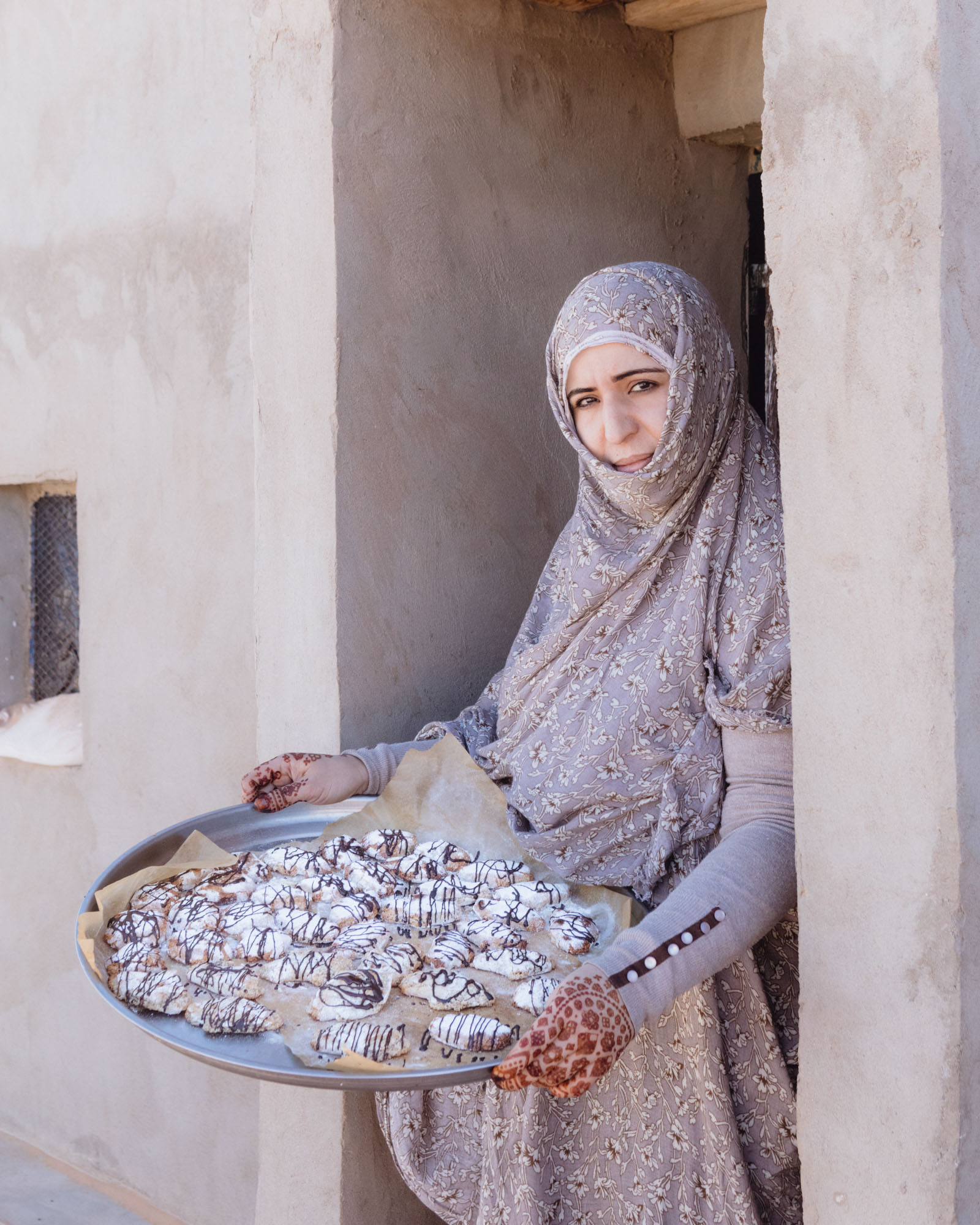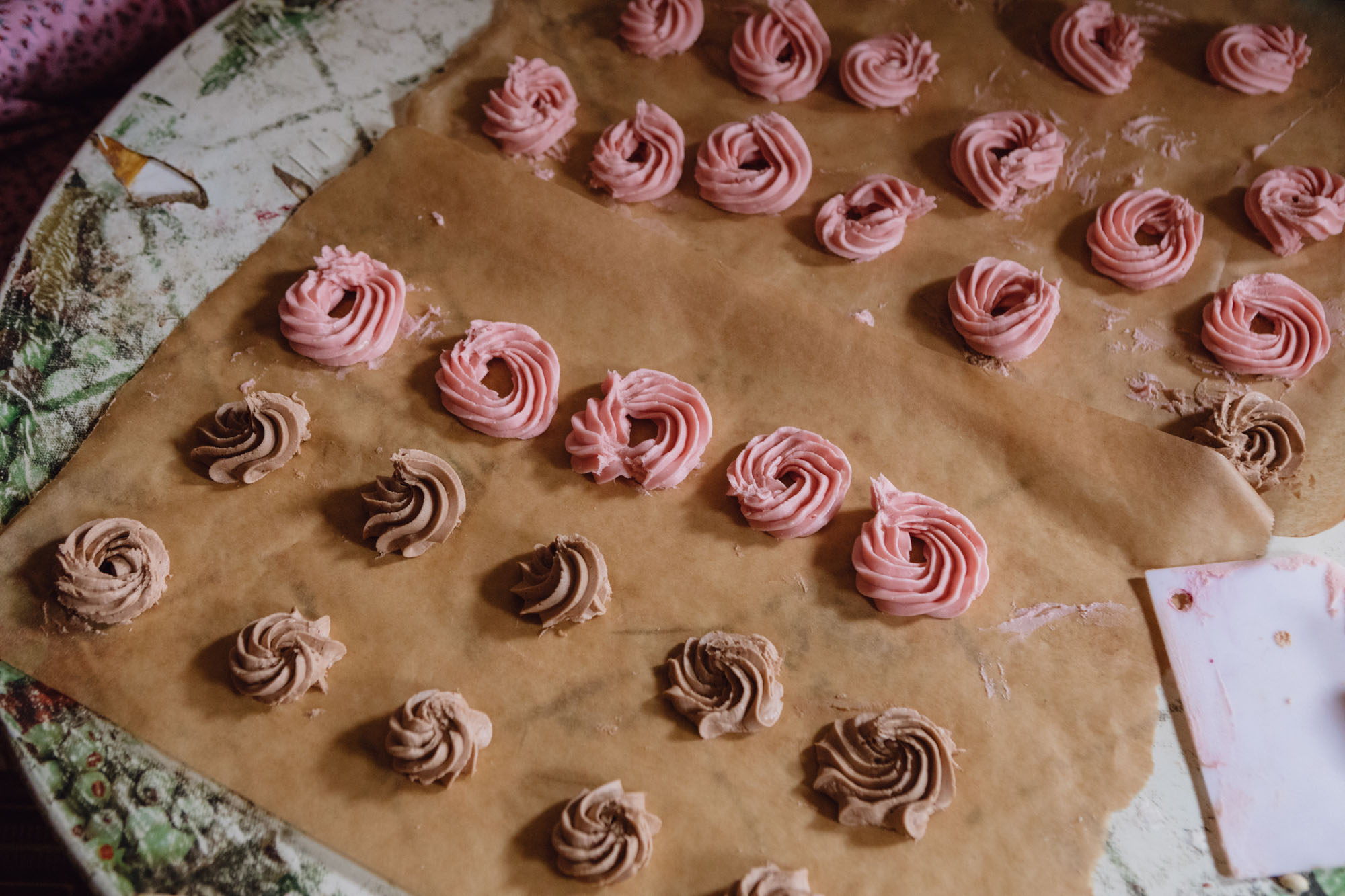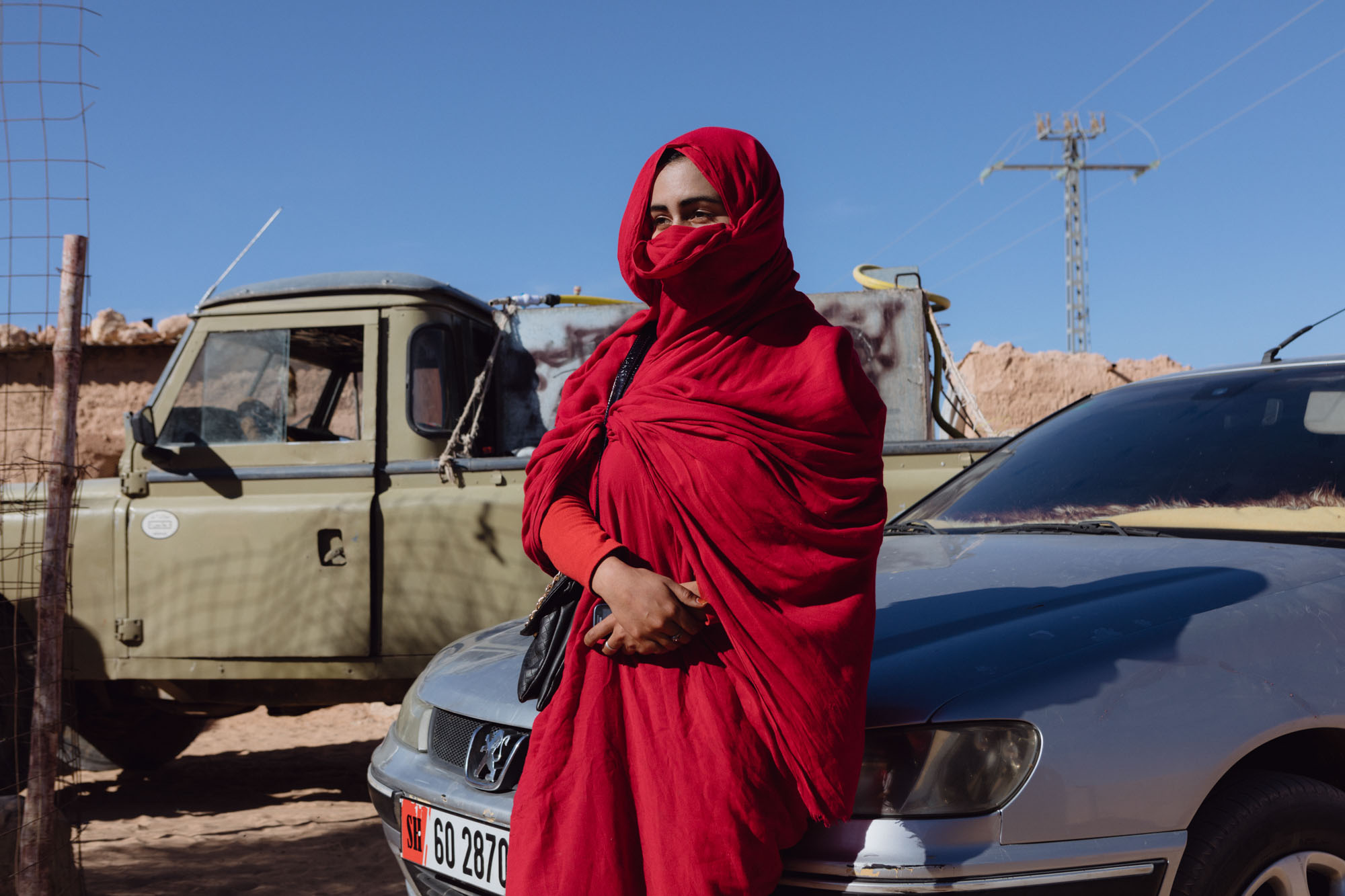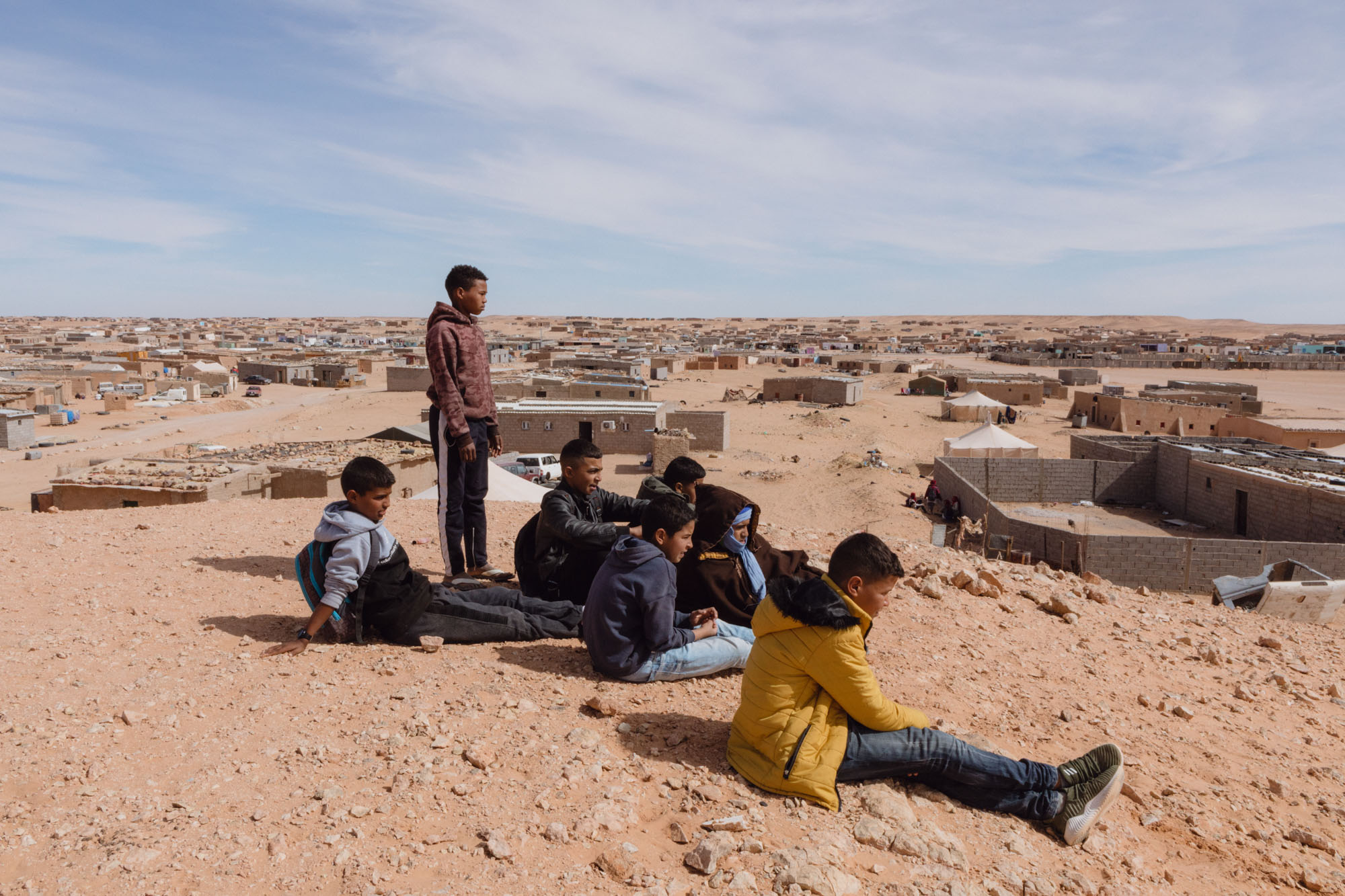Dessert in the Desert, Saharawi Refugee Camps
A pastry course for Saharawi
women living in the Algerian
refugee camps.
The Saharawi people of Western Sahara are still waiting for a homeland. For years, they have been denied the right to hold a referendum on self-determination.
Since 1975, about 300,000 Sahrawis have been living in the refugee camps near Tindouf, in Western Algeria, as back then - during the Western Sahara War - they fled from Moroccan forces.
With most of them still living in the camps, the refugee crisis is among the most protracted in the world.
The text continues after the images
The Saharawi people of Western Sahara are still waiting for a homeland. For years, they have been denied the right to hold a referendum on self-determination.
Since 1975, about 300,000 Sahrawis have been living in the refugee camps near Tindouf, in Western Algeria, as back then - during the Western Sahara War - they fled from Moroccan forces.
With most of them still living in the camps, the refugee crisis is among the most protracted in the world.
The text continues after the images

























In the Sahrawi society, women (Sahrawiya) share responsibilities at every level of community and social organisation. The role of Sahrawi women in society is central since pre-colonial and Spanish colonial period, and it was enhanced during the war years while the entire male population was involved in the Polisario Front.
Maddalena Borsato, Italian pastry chef and researcher at the University of Gastronomic Sciences in Pollenzo (Cuneo), ran a workshop for 30 local women over a week in three “Wilaya” (districts): Awserd, Smara and Bojador. The mission was not easy: make quality pastries with the few ingredients available in the camps (such as peanuts, dates, beetroots, margarine, flour, eggs and sugar).
Sahrawis are huge consumers of sugar, an average family consumes about 40kg in just one month. It’s a tradition since the Sahrawis were a nomadic community and needed a large amount of energy to walk long distances or to work. Moreover, there is the belief that sugar can cure all diseases.
Desserts can be needed when a family goes with the cattle in the desert for 40 days, bringing large quantities of dry food away, or on special occasions such as visits of friends and weddings.
That’s why the women members of the Sahrawi Trade Union (UGTSARIO, the labor organization of the Polisario Front) solicited the pastry workshop, which was organized together with the Italian associations Africa '70 and Nexus, in the hope of diversifying the range of products women can sell at the market and/or for special occasions and festivities.
THANKS
Sara Di Lello, Nexus Emilia Romagna, Africa ‘70 and the Italian Development Cooperation
Maddalena Borsato, Italian pastry chef and researcher at the University of Gastronomic Sciences in Pollenzo (Cuneo), ran a workshop for 30 local women over a week in three “Wilaya” (districts): Awserd, Smara and Bojador. The mission was not easy: make quality pastries with the few ingredients available in the camps (such as peanuts, dates, beetroots, margarine, flour, eggs and sugar).
Sahrawis are huge consumers of sugar, an average family consumes about 40kg in just one month. It’s a tradition since the Sahrawis were a nomadic community and needed a large amount of energy to walk long distances or to work. Moreover, there is the belief that sugar can cure all diseases.
Desserts can be needed when a family goes with the cattle in the desert for 40 days, bringing large quantities of dry food away, or on special occasions such as visits of friends and weddings.
That’s why the women members of the Sahrawi Trade Union (UGTSARIO, the labor organization of the Polisario Front) solicited the pastry workshop, which was organized together with the Italian associations Africa '70 and Nexus, in the hope of diversifying the range of products women can sell at the market and/or for special occasions and festivities.
THANKS
Sara Di Lello, Nexus Emilia Romagna, Africa ‘70 and the Italian Development Cooperation